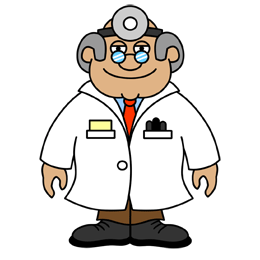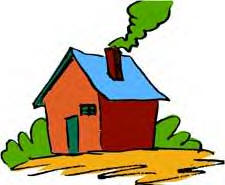Definition:
* Pain or discomfort of the scalp or forehead areas
* The face and ears are excluded
Causes:
* Viral Illnesses: Most headaches are part of a viral illness, especially with colds. These usually last a few days.
* Muscle Tension Headaches: The most common type of recurrent headaches. Muscle tension headaches give a feeling of tightness around the head. The neck muscles also become sore and tight. Tension headaches can be caused by staying in one position for a long time, such as when reading or using a computer. Other children get tension headaches as a reaction to stress, such as pressure for better grades or family disagreements.
* Migraine Headaches: Recurrent severe, incapacitating headaches
* Other Common Causes: Hunger, exertion, sunlight, coughing
* Frontal Sinusitis: Can cause a frontal headache just above the eyebrow. Rare before 10 years of age because frontal sinus is not developed. Other sinuses cause face pain, not headache.
* Serious Causes: Meningitis or encephalitis. Symptoms include a headache, stiff neck, vomiting, fever, and confusion.
 Call 911 Now (Your Child May Need an Ambulance) If:
Call 911 Now (Your Child May Need an Ambulance) If:
* Difficult to awaken or passed out
* Confused thinking or talking, or slurred speech
* Blurred or double vision
* Weakness of arm or leg, or unsteady walking
Call Your Doctor Now (or in Alberta, Canada call 780-408-LINK) If:
* Your child looks or acts very sick
* Stiff neck (can’t touch chin to chest)
* Severe headache
* Vomiting
Call Your Doctor Within 24 Hours (Between 9:00 am and 4:00 pm) If:
* You think your child needs to be seen
* Fever
* Sinus pain (not just congestion) of forehead
Call Your Doctor During Weekday Office Hours If:
* You have other questions or concerns
* Headache without other symptoms present longer than 24 hours
* Sore throat present longer than 48 hours
* Any headache present more than 3 days
* Headaches are a recurrent chronic problem
Parent Care at Home If:
Mild headache and you don’t think your child needs to be seen
 Home Care Advice for Headaches:
Home Care Advice for Headaches:
Treatment for Mild Headache
1. Pain Medicine: Give acetaminophen (eg, Tylenol) or ibuprofen (eg, Advil) as needed for pain relief. Headaches caused by fever are also helped by fever reduction.
2. Food: Give fruit juice or food if your child is hungry or hasn’t eaten in more than 4 hours (Reason: skipping a meal can cause a headache in many children).
3. Rest: Lie down in a quiet place and relax until feeling better
4. Local Cold: Apply a cold, wet washcloth or cold pack to the forehead for 20 minutes
5. Stretching: Stretch and massage any tight neck muscles
6. Call Your Doctor If:
* Headache becomes severe
* Vomiting occurs
* Isolated headache lasts longer than 24 hours
* Headache lasts more than 3 days
* Your child becomes worse
7. Muscle Tension Headaches: Extra Advice:
* If something is bothering your child, help him talk about it and get it off his mind
* Teach your child to take breaks from activities that require sustained concentration. Encourage your child to do relaxation exercises during the breaks.
* Teach your child the importance of getting adequate sleep
* If overachievement causes headaches, help your child find more balance
* CAUTION: Your child should have a complete medical checkup before you conclude that recurrent headaches are caused by worrying too much or stress
Treatment for Migraine Headache
8. Reassurance: This headache is similar to previous migraine headaches that your child has experienced.
9. Migraine Medication:
* If your child’s doctor has prescribed a specific medication for migraine, give it as directed as soon as the migraine starts. If not, ibuprofen (eg, Advil) is the best over-the-counter drug for migraine. Give ibuprofen now and repeat in 6 hours if needed.
10. Sleep: Have your child lie down in a dark, quiet place and try to fall asleep. People with migraine often awaken from sleep with their migraine gone.
11. Call Your Doctor If:
* Headache becomes much worse than usual
* Headache lasts longer than usual
Based on recommendations/advice in “My Child is Sick; Expert Advice for Managing Common Illnesses and Injuries”, 14th Edition, by Barton D. Schmitt
